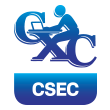This syllabus is designed to provide a coherent view of the significance of information in a socio-economic context. Emphasis is placed on application of knowledge, problem-solving using the computer, and proficiency in using productivity tools. This approach has been adopted in recognition of the impact that changes in the availability of information can have on the educational process. Focus is placed on getting students to develop skills for life in an increasingly technological world, rather than on students absorbing a myriad of seemingly unrelated facts which may have only short term relevance.
The syllabus aims to expose candidates to a wide range of Information and Communication Technologies, affording learning experiences which include an element of discovery, and foster self-confidence. Candidates would also acquire computer-related practical skills that will prepare them to meet the region’s need for increased productivity and efficiency in a fast changing technological world. The syllabus has been organized to offer certification at the General Proficiency only.
The syllabus is organised under eight main sections.
| Section 1 | Fundamentals of Hardware and Software |
| Section 2 | Problem-Solving and Program Design |
| Section 3 | Program Implementation |
| Section 4 | Applications and Implications of Information and Communications Technology |
| Section 5 | Information Processing |
| Section 6 | Word processing, Presentation and Web Page Design |
| Section 7 | Spreadsheets |
| Section 8 | Database Management |














